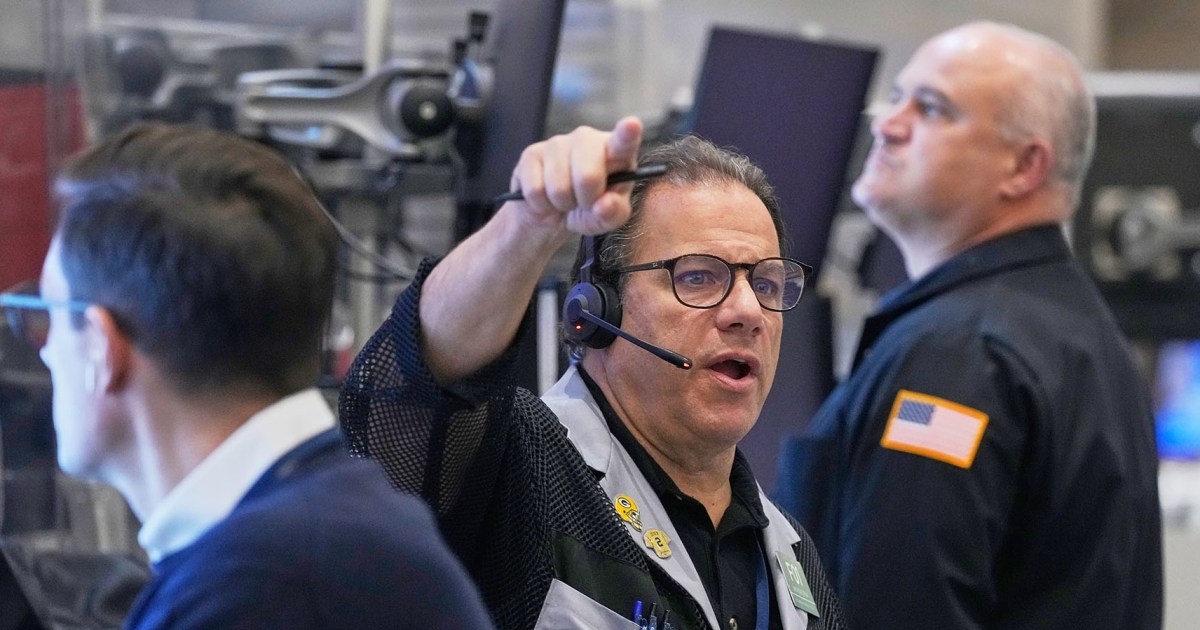Investors’ initial euphoria gave way to selling as hopes for a December rate cut faded and bitcoin continued to sell off.
What began as a banner day for stocks turned into a major rout, as investors signaled ongoing skepticism about the longevity of the artificial intelligence boom and trimmed hopes of support from the Federal Reserve.
The tech-heavy Nasdaq fell 2%, and the broad S&P 500 index dropped by more than 1.5%. The Dow Jones Industrial Average, which tracks 30 top-tier stocks, declined by nearly 390 points. It had been up 700 points earlier in the day. Cryptocurrencies also shed billions in value: Bitcoin had fallen below $87,000 as of late Thursday afternoon, weeks after having set highs above $120,000.
The stunning turnaround added further unease to an already shaky economy that has forced households to trim budgets amid stubborn inflation and signs of a wavering job market. With an ever-increasing part of the economy’s principal driver — consumer spending — now reliant on affluent households, an extended market pullback could inflict wider damage.


To be fair, retirement index funds only exist to make sure numbers constantly go up.
You can’t plan for retirement without investing in the stock market, so it’s a guaranteed influx of funds. No matter what happens, every paycheck a shit ton of “new” money goes into the market into predictable companies.
The wealthy 100% don’t just let their money ride. They know when a dips coming, because most of the time the dip is caused by them and their buddies pulling money out knowing they can buy back in cheaper later, because they have enough wealth to control the market.
We’re propping up the oligarchs in the hopes that we fall into a “good” time to retire. And the bad news is the oligarchs have a very real motivation to prevent that. They could have us working and putting more into the market, or retired and taking money out, they’ll always want us working because that makes numbers go up.
Indexes like the S&P 500 increase an average of 8% per year when held for decades. It isn’t ‘getting lucky’ and ‘hoping’, it’s investing in your future.
A rising tide lifts all boats; helping yourself helps others. You can choose to help yourself, or be defeatist and ignore the best, time-tested strategy there is: investing part of every paycheck into index funds.
I do the same, but I’m under no illusions this is safe practice. Every time-tested bit of good sense works until it doesn’t.
The best argument for index funds at this point aren’t their stability - it’s that they seem least likely to collapse in the burning cesspit of the modern world economy.
Investing in the least sick looking cow.
Yeah…
But ask people who were planning to retire in 2009 how happy they are that the market rebounded decades later…
You can do everything right, but if there’s a crash in the decade you want to retire, you’re fucked.
Even more so if you retire and start withdrawing right before.
Over all, yeah, it averages out
But neither of us are average, were individuals, and sometimes individuals get fucked
As you approach retirement, you transition your stocks into bonds as well as into cash in high yield savings accounts. You do this because those investments are less risky and you need stability, not growth at that point in your life. You do this to avoid exactly the issue you bring up.
Buddy…
What do you not understand about “a financial crash can happen at the most inconvenient time”?
If your plan is “just don’t get caught in a crash” then best if fucking luck bro. Because that’s what your entire future boils down to.
But you clearly don’t want any logic in the way of your survivorship basis, best bet is to stomp your feet and insist what happened to millions before you can’t happen to you.
You’re smart, you’ll obviously see everything coming.
Absolutely not. The transition from stocks and into bonds and cash in high yield savings accounts is something you do slowly as you approach retirement and only completes well into retirement. The point is you don’t know what the market is going to do right around retirement, as you mention, so you need to move to more stable investments.
Money invested into things like a high yield savings accounts cannot decrease, a crash does not affect it at all. That is the entire point of transitioning to them as you approach retirement.
Employing time-tested strategies is the way to go. Accounting for potential crashes is the way to go. The problems you bring up are real, and the solutions I mention are the time-tested way to account for them.